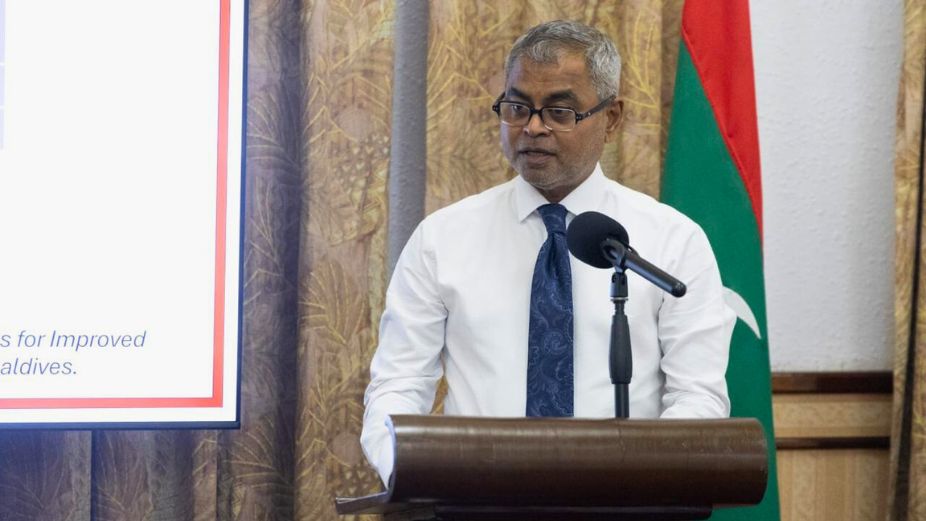
A new project named Thayyaaru has been launched to enhance the Maldives’ capacity to respond to climate-induced disasters, marking a step forward in building community resilience across the island nation. The initiative was officially unveiled in Malé yesterday, with key representatives from the Maldives government, the United Nations Development Programme (UNDP), and the Embassy of the People’s Republic of China in attendance.
With over 500,000 people living across 187 dispersed islands, the Maldives remains acutely exposed to extreme climate events such as coastal flooding, monsoon storms, erosion, and extended dry periods that cause freshwater shortages. These challenges have tested the country’s limited meteorological infrastructure, reducing the Maldives Meteorological Services’ ability to deliver timely and accurate weather alerts.
The Thayyaaru project, supported by UNDP through its South-South Cooperation platform and fully funded by the China International Development Cooperation Agency (CIDCA), will aim to transform the country’s disaster preparedness framework. Efforts will include upgrading weather observation systems, improving the maintenance of radar and automated weather stations, and deploying advanced instruments to increase forecasting accuracy.
The project will also pilot digital platforms and community alert mechanisms that are tailored to local contexts and sensitive to gender dynamics, ensuring that timely warnings reach those most at risk.
Speaking at the event, Minister of Tourism and Environment Thoriq Ibrahim noted that the initiative is aligned with the global Early Warning for All campaign and the Maldives’ national goals of strengthening disaster readiness. “This project will strengthen disaster preparedness and ensure timely and effective early warning systems,” the Minister said.
Ambassador of China to the Maldives, H.E. Kong Xianhua, highlighted the importance of international partnerships in addressing climate risk, describing the tripartite project as a symbol of China’s commitment to meteorological cooperation under the 2030 Sustainable Development Goals framework.
UNDP Resident Representative Enrico Gaveglia stressed the difficulty that small island states like the Maldives face in accessing climate finance. He praised the CIDCA-UNDP collaboration as a vital example of effective multilateral support. “Year after year, climate change continues to test the resilience of the Maldives. The multilateral cooperation and key partnership that UNDP has developed with CIDCA exemplify why such cooperation remains relevant in the Asia Pacific Region,” Gaveglia stated.
As climate risks escalate, the project underscores the growing urgency for inclusive, technologically sound early warning systems tailored to the vulnerabilities of small island nations like the Maldives.











